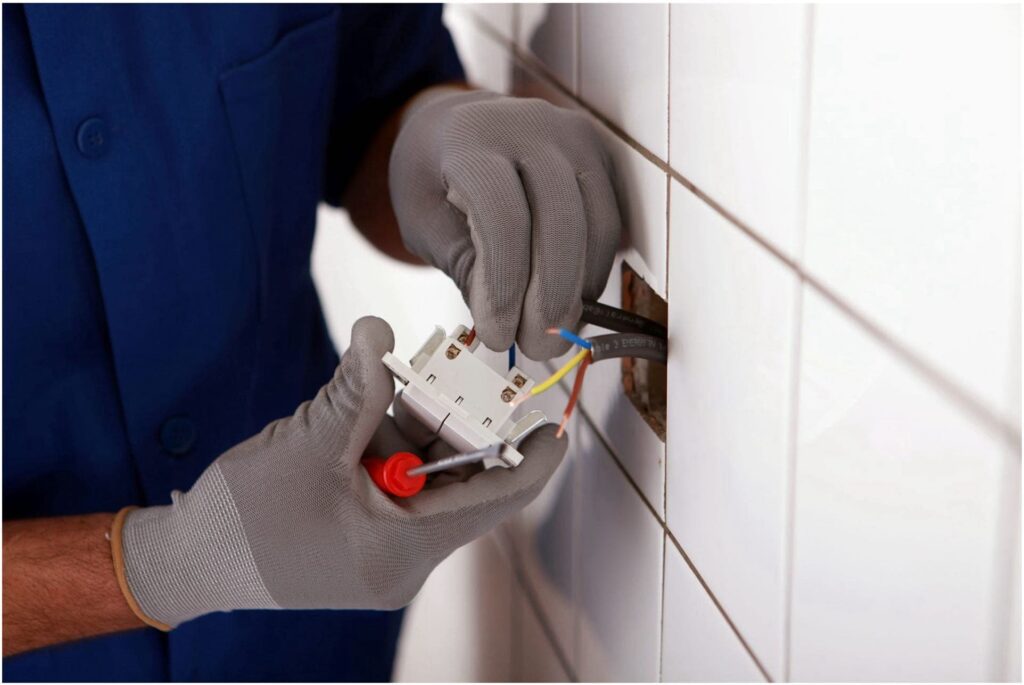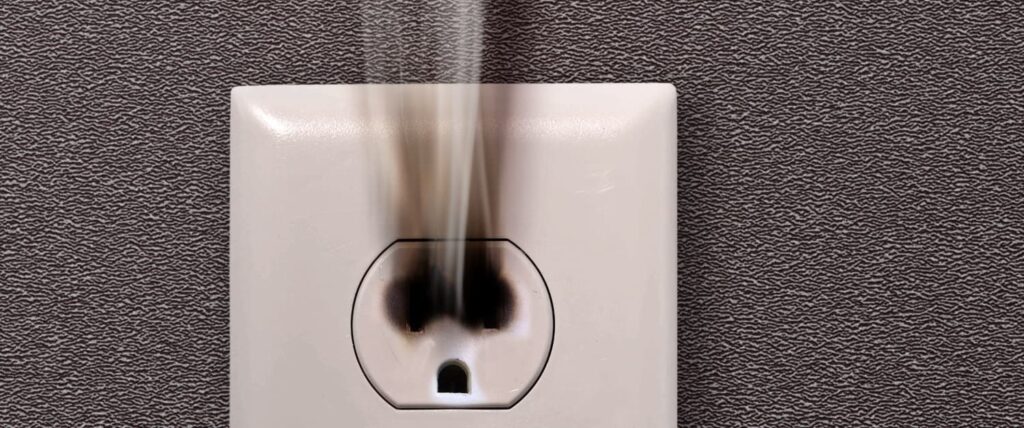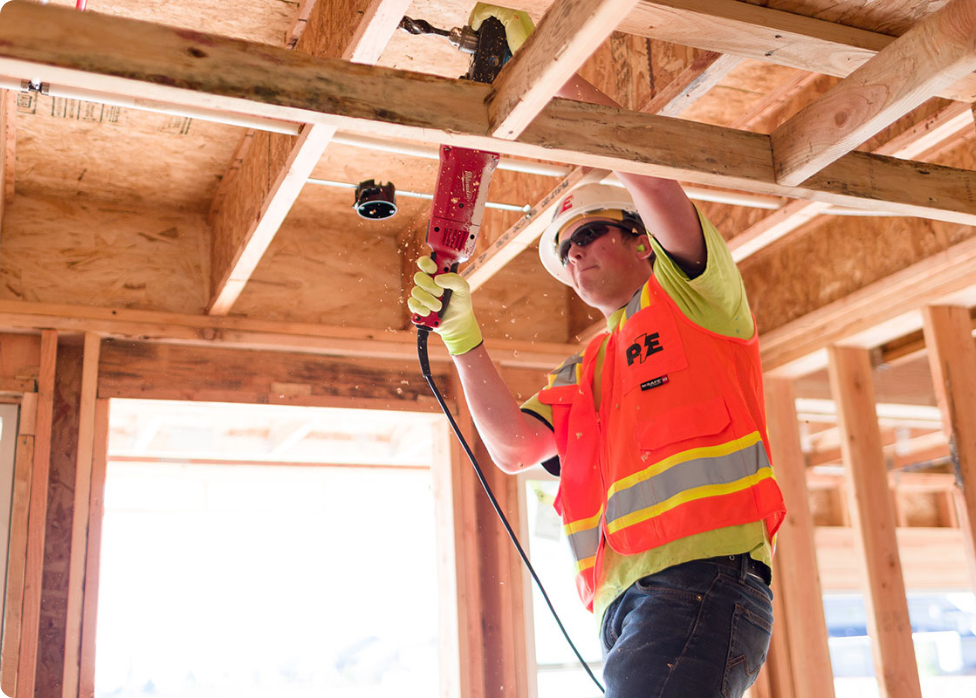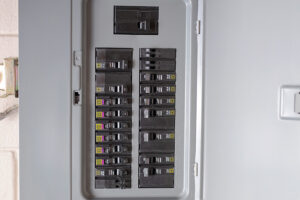There’s a special charm to owning an older home, whether it’s the unique built-in shelving, the quirky staircases, or the classic design elements that just aren’t found in new builds. However, with that charm comes the challenge of outdated electrical systems. Many older homes, especially those built 80, 90, or even 100 years ago, weren’t designed to handle the electrical demands of today’s technology. Whether it’s powering modern appliances, charging electric vehicles, or ensuring your home is safe from electrical hazards, updating your wiring might be necessary.
Why Rewiring is Necessary
Older homes often feature outdated wiring systems like knob-and-tube wiring or aluminum wiring, both of which pose significant safety risks. Knob-and-tube wiring, commonly used in homes built in the early 20th century, consists of wires wrapped in fabric and ceramic knobs. While it was sufficient for the minimal electrical needs of the past, this type of wiring lacks a ground wire, increasing the risk of electrical shock or fire, especially when using modern three-prong plugs.
Aluminum wiring, popular during the 1960s due to a copper shortage, also presents issues. Aluminum expands and contracts when heated, leading to loose connections over time. This, combined with the tendency for oxidation, makes aluminum wiring a fire hazard. If your home has either of these wiring systems, it may be time to consider an upgrade.
What’s the Cost of Rewiring a House?
Rewiring a house can sound like a daunting and expensive task, but it doesn’t always mean ripping out all the existing wiring. Sometimes, updating the electrical panel or circuit box to handle the increased power demands of modern appliances is all that’s needed. The cost to rewire your house depends on several factors, including the size of your home, the type of wiring used, and whether your house is already undergoing renovations.
For a 3-bedroom, 1,500 square foot home, the average cost to rewire can range from $10 to $20 per square foot. This means a full rewiring project could cost between $15,000 and $30,000. Smaller homes, such as a 2-bedroom bungalow, will naturally be on the lower end of this spectrum. In comparison, larger homes, like a 3,000 square foot property, could see costs upwards of $60,000.
However, if your home is already undergoing renovations, rewiring could be more cost-effective. With walls already opened up, electricians won’t need to spend extra time cutting through and repairing drywall, potentially saving you a significant amount of money.

Additional Costs to Consider
When estimating the cost of rewiring a house, it’s important to consider other expenses beyond just the wiring itself. Labor costs can vary depending on the complexity of the job, the location of your home, and the electrician’s experience. Material costs, including new outlets, switches, and electrical panels, will also add to the total. For example, a 200 amp panel replacement could cost anywhere from $1,000 to $3,000 depending on various factors.
In addition to the costs of labor and materials, there might be permit fees and inspection costs to ensure the work meets local codes and standards. These are necessary to ensure the safety and legality of your new electrical system.
Potential Savings from Rewiring
While the upfront cost of rewiring a house can be substantial, there are potential savings to be had in the long run. Modern wiring systems are more energy-efficient, which can lead to lower electric bills. Older wiring can be less conductive, resulting in energy losses that cost you money over time. By updating your wiring, you can improve the overall efficiency of your home’s electrical system.
Moreover, homeowners insurance premiums may decrease after a rewiring project, especially if your current system is considered a fire hazard. Some insurers charge higher premiums for homes with outdated electrical systems, so upgrading could lead to savings on your insurance costs.
Signs Your Home Needs Rewiring

Knowing when to rewire your house isn’t always straightforward, but there are some clear signs that indicate it might be time to upgrade your electrical system:
- Frequent tripped circuit breakers or blown fuses: This could indicate that your current electrical system is overloaded and struggling to meet your home’s power demands.
- Flickering or dimming lights: If your lights frequently flicker or dim, it may be a sign of outdated wiring.
- Burning smells or discolored outlets: These are serious warning signs of potential electrical fires and should be addressed immediately.
- Outlets with two prongs: Modern electrical systems use three-pronged outlets. If your home still has two-pronged outlets, it’s a sign that your wiring is outdated.
- Aluminum wiring: As mentioned earlier, aluminum wiring is a known fire hazard and should be replaced with copper wiring.
If your home is over 40 years old, it’s highly recommended to have your electrical system inspected by a licensed electrician. This is especially true if your home has never been rewired or has undergone major renovations without an electrical upgrade.
Choosing the Right Electrician for the Job
Rewiring a house is a complex job that should always be handled by a licensed professional. A reputable electrician will ensure that your home meets all municipal codes and safety standards. They will also provide a detailed estimate that includes the cost of labor, materials, permits, and inspections.

Prairie Electric has been serving Vancouver, WA and the Clark County and Portland Metro areas for decades, providing reliable and safe electrical services. Whether you need to rewire a small townhouse or a larger 3+ bedroom home, our team of experienced electricians is here to help. We take pride in our work and ensure that every job is done right, keeping your home and family safe.
Is Rewiring Worth the Cost?
Rewiring a house is a significant investment, but it’s one that pays off in terms of safety, energy efficiency, and peace of mind. By updating your home’s electrical system, you’re protecting your property from potential hazards and ensuring that it can handle the demands of modern technology.
If you’re considering a full home rewiring, upgrading outlets, or simply replacing an outdated electrical panel, Prairie Electric is here to guide you through the process. Contact us today for a consultation and let us help you keep your home safe and up to date.


